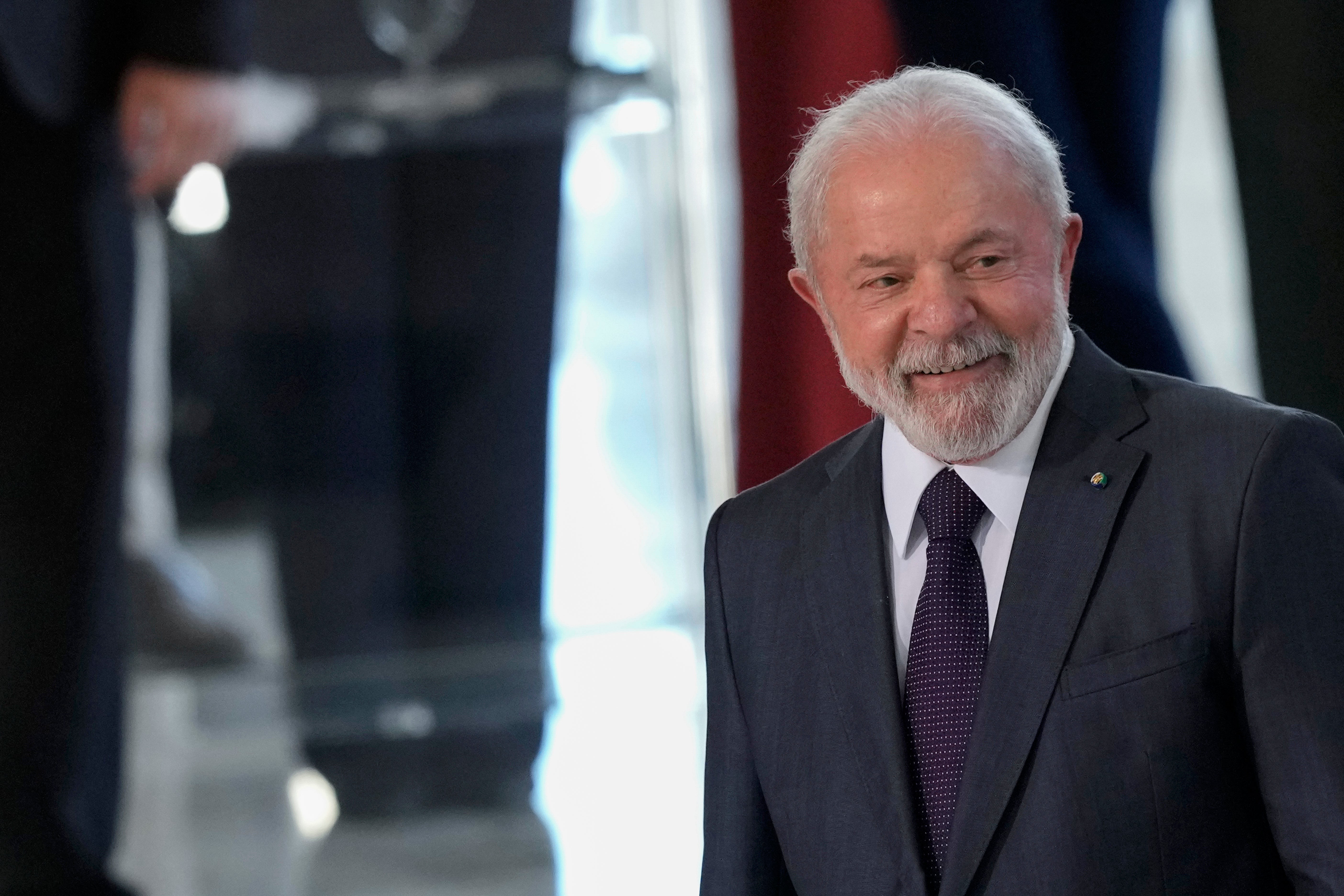Brazil's Lula visits Portugal amid Ukraine tensions with EU
Brazilian President Luiz Inácio Lula da Silva is set to arrive in Portugal amid heightened tensions with the European Union over his position on the war in Ukraine

Your support helps us to tell the story
From reproductive rights to climate change to Big Tech, The Independent is on the ground when the story is developing. Whether it's investigating the financials of Elon Musk's pro-Trump PAC or producing our latest documentary, 'The A Word', which shines a light on the American women fighting for reproductive rights, we know how important it is to parse out the facts from the messaging.
At such a critical moment in US history, we need reporters on the ground. Your donation allows us to keep sending journalists to speak to both sides of the story.
The Independent is trusted by Americans across the entire political spectrum. And unlike many other quality news outlets, we choose not to lock Americans out of our reporting and analysis with paywalls. We believe quality journalism should be available to everyone, paid for by those who can afford it.
Your support makes all the difference.Brazilian President Luiz Inácio Lula da Silva was set to arrive in Portugal on Friday amid heightened tensions with the European Union over his position on the war in Ukraine, following statements suggesting the invaded country and the West share responsibility for the conflict.
Lula said last weekend while traveling in the United Arab Emirates and China that both Ukraine and Russia had decided to go to war, and that the U.S. was “stimulating” the fighting. Earlier in the month, he irked Ukraine, the U.S. and the EU by suggesting that Ukraine cede Crimea, which Russia seized in 2014, to end the current conflict.
Lula also welcomed Russian Foreign Minister Sergey Lavrov to Brasilia on Monday. The following day, Lula condemned the “violation of Ukraine’s territorial integrity” while promoting his proposal for a club of nations, including Brazil, to mediate a peaceful resolution to the war.
Lula's trip to Portugal is an opportunity to repair some of the damage to Brazil-EU relations his comments caused, said Guilherme Casarões, a political scientist at the Getulio Vargas Foundation, a think tank and university in Sao Paulo.
“It could be an important step for Lula to show that he is really willing to adopt a position of balance or equidistance between the parties involved in the conflict, potentially allowing Brazil to play the role of mediator in the medium term,” Casarões said.
Lula was expected to meet with Portugal's president and prime minister this weekend and to appear at a Portugal-Brazil summit with various ministers. He is also scheduled to attend a Monday prize-giving ceremony for Brazilian musician and writer Chico Buarque.
Lula plans to address Portugal's parliament on Tuesday, which is the anniversary of the 1974 Carnation Revolution that ended nearly a half-century of authoritarian rule in Portugal.
Trade will also be high on the agenda, with Lula pushing for implementation of an agreement between the European Union and the South American Mercosur bloc. It was signed in 2019 but hasn’t yet taken effect as not all EU and Mercosur member nations have ratified the agreement.
“Through this trip to Portugal, Lula is seeking to draw closer to the European Union itself,” Casarões said. “Portugal is a Brazilian ally within the European Union and can serve as a platform for Brazil to defend its position in the context of these negotiations."
During the presidency of Lula’s predecessor, Jair Bolsonaro, France and other EU members voiced concern that the deal could increase destruction of the Amazon rainforest. Lula, for his part, has tried to show that environmental protection is a central priority of his government and promised to end illegal deforestation by 2030.
As a result, it is unlikely that environmental concerns will be an issue for completing the deal, Casarões said.
Brazil is a former Portuguese colony. The royal court left Lisbon in 1807 for Rio de Janeiro, which briefly became the seat of the Portuguese empire. Since Brazil won independence in 1822, the two countries have maintained close ties and are part of the Lusophone Commonwealth, officially known as the Community of Portuguese Language Countries.
Many Brazilians have moved to Portugal over the past decade amid an economic downturn and political turbulence.